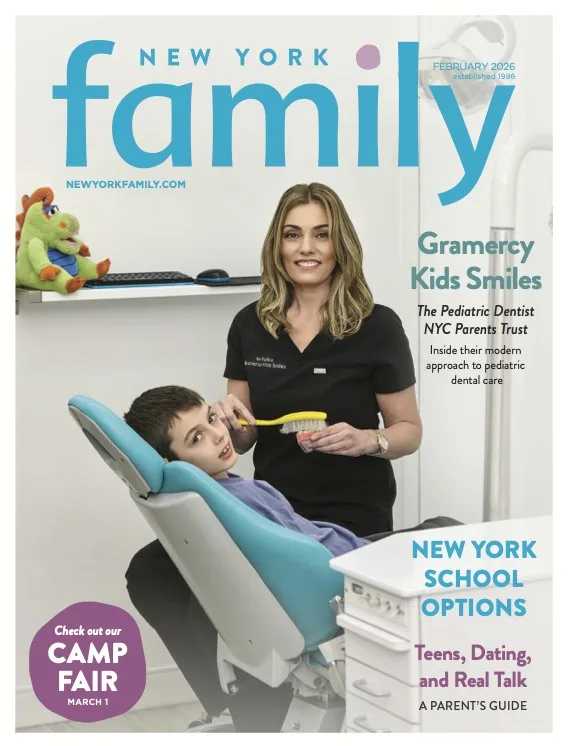
“There was a day when ‘boarding school’ meant you dropped your kids off in September and picked them up in May,” says Tom Sheppard, the director of admissions at the Lawrenceville School in Lawrenceville, New Jersey. There are also the clichés that depict boarding schools as playgrounds for the children of the super-rich, as well as places to where troubled kids get shipped off to. Sheppard assures us: “That is definitely not the case anymore.”
The reality is that the residential aspect of boarding school is a way for students to learn beyond the classroom, with plenty of parental visits for games, performances, and teacher meetings. We reached out to parents, educators, and school consultants for other aspects of a boarding school education that you just can’t replicate anywhere else.
Where To Begin:
“There’s a boarding school for every child,” says Diana Fisher, school advisor at the Parents League of New York. In fact, there are 286 across the United States, according to the Boarding School Review.
Nicole Moon, Director of Admissions at Purnell School in Pottersville, New Jersey, agrees with the “lid for every pot” philosophy. She says, “There’s small, large, single sex, coed; from therapeutic to the most rigorous academic school.” Programs also vary from traditional to progressive programs. If you don’t want your child to board for all four years, Moon notes that students can even enter as juniors or seniors and use the experience as “practice” for college. On the flipside, if your child is ready for the boarding school experience in their middle school years, there are junior boarding schools for grades 6-9 too.
Community:
Boarding schools are communities in and of themselves. Students live in dorms with each other and get to know each other more intensely than at a day school. So it’s no surprise that community is often a close second to academics as the top reasons to choose a school.
Usually, the sense of community becomes evident as soon as you hit campus. Smart City Kids founder Roxanna Reid says a big reason she chose to send her 15-year-old son to Blair Academy in Blairstown, New Jersey: “I saw nice kids and teachers who were committed, raising their families there. It felt like an extension of home.”
Gina Malin, director of school advisory services at the Parents League of New York, points to the sense of community as a big reason that boarding schools are renowned for their school spirit.
Structure:
Structured days are fundamental to helping adolescents learn to live a well-ordered life and are a main part of a boarding school’s philosophy. Each school has its own framework, so it is important to ask what’s happening all day, all night, and on the weekends. Do children have to show up to meals? Is there assigned seating? How are the classes blocked? There might be school on Saturdays and a weekday dedicated to extra curricular activities.
“Kids are kept very busy, and there’s a lot of accountability,” Moon says. Fisher makes a point of mentioning that there is also enough down time, so students can enjoy solitude or socialize informally.
Faculty And Friends As Family:
“When you send your child to boarding school, there’s this fear that no one is going to have the insight into them that you do,” says Gabriella Rowe, head of school at the Mandell School, whose own 14-year-old son Julian is a freshman at the Hotchkiss School. But she insists that trepidation goes away when you see that the people really know what’s up in your child’s life every single day—and she personally feels very confident in her son’s teachers. Reid adds, “I feel like Ty’s protected and taken care of. There’s a lot more vigilance [at Blair] than even I could offer while I was at work.”
From the school’s perspective, Sheppard notes that safety is the number one priority at the Lawrenceville School. At Masters School in Dobbs Ferry, New York, director of admissions Keith Holton confirms that there are a series of checklists in place—if a student isn’t there for the morning school meeting, for example, they’ll be tracked down right away.
Location, Location, Location:
There’s really no right answer to which locale will suit your child best. Moon advises fit first, location second. “Find the perfect school for you regardless of where it’s located,” she says. That said, the commute remains an important factored.
For Rowe, she decided she could live with the fact that Julian’s perfect school ended up being outside of New York, because the four-hour drive for weekend visits and games was still manageable. Reid, on the other hand, was relieved that the right school for Ty was only an hour away. “I really wanted to both be a part of the community and be able to attend as many events as I could. The close proximity makes this as seamless as if he were still at home,” she says.
Academics, Arts, Athletics:
Boarding schools motivate children to develop a variety of interests, and the beauty of it all, according to Fisher, is that so much stimulation is available right on campus. This offers a balance that may otherwise elude many students in the city, where organizing and scheduling kids’ schedules can be difficult.
“When Ty was home, in order to excel academically, he often had to give up on the arts and sports,” Reid recalls. “There just wasn’t enough time.” Rowe agrees, noting that her son is now in a strong sports program, where everyone, not just the top athletes, have the ability to play. Plus, he has access to plenty of arts opportunities too.
Not only is this a great thing for kids who may have issues with time management, but, as Moon points out, it gets students on track for building their resumes for college applications.
Dorm Life:
“Life in the dormitories provides opportunities for leadership, like running the dorm or creating the residential activities,” Sheppard says. Boarding schools also attract students from all over the U.S. and the world, so kids learn to live with individuals with different backgrounds and opinions and have a great opportunity to share both differences and commonalities.
Dorm life also goes hand-in-hand with acquiring a whole new set of skills for becoming self-reliant and growing emotionally. “It’s a precursor to what they’re going to encounter when they get to university,” Sheppard points out.
Independence:
“Part of the process of being independent is providing students the opportunities to do things on their own, like homework and getting where they need to be,” Holton says. Sheppard also stresses the importance of helping students understand that they’re part of something bigger than themselves. “It puts upon them a responsibility they might not have at home. Not only are they responsible for themselves, but [also for] all the boys and girls sharing that residential space with them,” she explains.
Boundaries:
The residential setting helps children recognize and respect limits and boundaries. “Of course, there are clearly defined rules and consequences, Sheppard says. “But any good boarding school is going to have systems in place, like counseling and getting input from parents, so when dorm life hits the ground running the dorm parents are prepared for the nuances of each child.”
Rowe notes that stereotypical teen issues that parents might be concerned about when it comes to boarding school life—like drugs, alcohol, boy/girl problems—are really high school issues, not only boarding school ones. Be that as it may, how does one accept that their child is living by someone else’s regulations? “Find a school that’s consistent with how you parent,” Reid advises.
Your Family Life:
One question that looms large for parents considering boarding school is what the effect will be on their family unit. “There is a misconception that you lose your child to boarding school,” Malin says. To the contrary, some feel that the quality time between parents and children is actually enhanced. “All the messages they had instilled at home are now also instilled by other adults in school, which adds greater value,” Sheppard says.
For a list of boarding schools within reasonable range of the city, click here.










